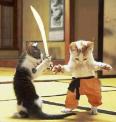noguaranteeofsanity
Posts: 257
Joined: 11/24/2009
From: Sydney, Australia
Status: offline

|
quote:
ORIGINAL: Ebusitanus
quote:
ORIGINAL: JeffK
Not sure if available easily in the USA, look up books by Peter Brune, an excellent writer who did a number of books on this era.
Found five matches on Amazon. After recently watching that Aussie flick "Kokoda" I feel ready to read up on their toils in NG
Have to recommend these books as well.
quote:
ORIGINAL: Commander Cody
I would not receommend "Kokoda." As I recall, it's only about a young, frightened squad of Aussie soldiers in a very small patch of woods with Japanese supermen soldiers who are probably played by a local rugby team since you never see their faces. Nothing at all in the flick about the campaign or the larger picture. Looks like it's made by a typical filmmaker who doesn't know anything about war other than that it is bad. Disappointing to me, but your mileage may vary.
Just looked up the Wikipedia entry and this line explains a lot: "Due to budgetary restrictions, Grierson and co-writer John Lonie were forced to scale down the story, concentrating primarily on the trials and tribulations of one lost patrol." So there you have it.
Cheers,
CC
quote:
ORIGINAL: Ebusitanus
Perhaps its a matter of expectations. Having read about the campaign and not expecting much in the ways of CGI or mass productions for this movie, I quite enjoyed the dense jungle experience and the misery endured by this militia squad. Its certainly worth watching IMHO. Its better to have a semi decent movie about this obscure theatre than nothing at all.
Largely it is budget restrictions that kept the story and production fairly simple, Australian films are usually made with an average budget of 1 million dollars, usually provided by government grants and by giving massive tax concessions to investors. On the other hand, the cheapest Hollywood production usually starts at 50 million dollars. This is why Australian films are not full of action scenes and CGI effects, as they cannot afford it and also the government funding, is provided to produce films that tell Australian stories for Australian audiences, which is why the film concentrates on the experiences of the Australian soldiers. Although I do agree that the characters and script could have had been a little better.
The story of the 39th battalion is also a very Australian story, that fits perfectly with our view of war and our soldiers, that differs from that in the US and comes from Australian experiences during the WW1 invasion of Gallipoli, which is considered to be a defining moment in our history. Neither was a great military victory and instead could be considered to be mistakes or blunders, ordered by a deluded high command with little understanding of reality, but the adversity, hardships and struggles overcome by the soldiers in the face of such overwhelming odds, are considered to be defining characteristics of Australians and our soldiers. In a way, the larger campaign or battle is not as important, as the experiences and struggles of the individual Australian soldiers. It was the soldiers that fought and struggled to overcome those odds during the campaign and deserve to be respected for it, not the Generals far behind the lines, issuing orders from the safety of their headquarters.
Finally, you have to remember these were conscripts, given little training and rushed into battle in an attempt to stop the Japanese advance. Although not in the film, both during the battle and after stopping the Japanese advance, Australian soldiers were called cowards by MacArthur and Blamey, who even told the 21st Brigade whilst on parade: "it's the rabbit who runs who gets shot, not the man holding the gun." The soldiers ended up refusing the 'eyes right' order and Blamey apparently was lucky to escape alive, but was reminded of the incident when he visited a military hospital to find the soldiers, sitting up nibbling on lettuce and singing "Run, Rabbit, Run". This is the sort of thing that might appeal to Australians, but is probably not as appealing and somewhat 'foreign' to an international audience.
quote:
ORIGINAL: Ranger5355
I wonder how many of those Aussies had already spent time in North Africa before coming to the Pacific. Quite a change of pace
Three divisions from the 2nd AIF fought in the Middle East.
< Message edited by noguaranteeofsanity -- 2/9/2011 11:52:05 PM >
|
 Printable Version
Printable Version







 )
) 












 New Messages
New Messages No New Messages
No New Messages Hot Topic w/ New Messages
Hot Topic w/ New Messages Hot Topic w/o New Messages
Hot Topic w/o New Messages Locked w/ New Messages
Locked w/ New Messages Locked w/o New Messages
Locked w/o New Messages Post New Thread
Post New Thread